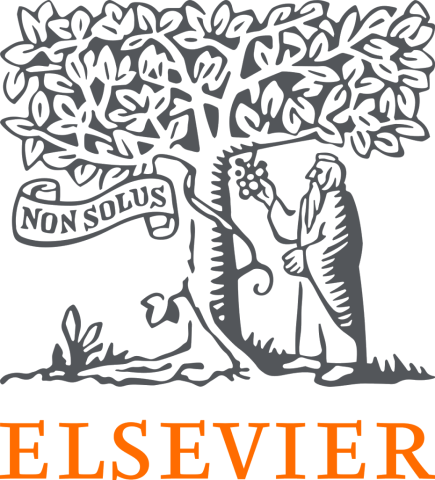
Five steps for engaging policymakers with research
Five pointers to help researchers get policymakers interested in their work, based on a guide co-created by government and academics from the University of Leeds
Research management
Sponsored by

Elsevier helps researchers and healthcare professionals advance science and improve health outcomes for the benefit of society.

You may also like
Popular resources
Many academic researchers struggle to engage policymakers with their work. They are often unsure where to start and sometimes feel that any approaches they make might be unwelcome or superfluous.
To demystify the processes involved in policymaking, the Centre for Cultural Value collaborated with the Department for Digital, Culture, Media and Sport to develop a new resource for academic researchers: How to shape cultural policy through research.
The guide draws on the insights we gained when researching the impacts of the Covid-19 pandemic on the UK’s cultural sector. As part of this work, we embedded researchers within policy teams at local, regional and national government levels across the UK.
Although our focus was on shaping cultural policy, much of what we learned about maximising research impact is widely applicable across different policy areas.
1. Start pushing at an open door
Policymaking is not as mysterious as it seems. Policymakers are generally eager to garner evidence based on robust research, and the Covid-19 pandemic has radically shifted the relationship between academics and policymakers.
During the pandemic, policymakers realised that they urgently needed accurate facts, figures and evidence of how Covid-19 was impacting different groups in order to target their recovery funds as effectively as possible. This meant that academics and industry insiders were needed more than ever.
- Spotlight guide: How to demonstrate research excellence
- Clear communication as the key to international collaboration
- No one agrees on what research leadership is, let alone how to do it well
One positive legacy of the pandemic is that policymakers are more eager than ever to engage with research. By following the tips in our guide about identifying and reaching out to policymakers, academics now have a real opportunity to transform their insights into impact and action. For example, we advise researchers to makes links with third parties such as research centres in their field and to present their work to dedicated parliamentary groups (APPGs).
2. Understand what policymakers want from researchers
HM Treasury’s The Green Book requires public policymakers to draw on robust evidence when developing new policies. Independent, peer-reviewed academic research can therefore complement the research undertaken by government analysts and researchers and enhance the accuracy of policy appraisals.
It is also the case that research can aid policymakers’ understanding of the needs and experiences of a given industry or sector. In doing so, academic research is a valuable resource; it can facilitate more innovative and connected approaches to finding policy solutions.
Above all, though, policymakers emphasised that for them the most useful research was evidence that was actionable. Therefore, by being clear sighted about which aspects of your research you wish to highlight and what questions or challenges it addresses for officials, you will increase engagement and impact.
3. Collaborate with others
Tapping into existing networks can allow researchers to play a vital role in collaborative policy intervention.
Policymakers are increasingly interested in opening up their policymaking processes, with one aim being to bring in more diverse voices alongside a broader range of expertise. In the cultural sector, networks such as the Arts Collaboration Network helped to influence policy decisions on freelancers, funding and non-artist creative workers during the pandemic. Likewise, membership and support organisations and trade unions also offer excellent mechanisms for collective engagement on shared policy agendas.
While using established networks can help researchers extend their reach, it is also the case that researchers can provide businesses and charitable organisations with opportunities to develop relationships with public bodies and policymakers. This approach allows sector partners to inform the policy environment in which they work. Researchers can therefore act as valuable conduits and critical friends to both policymakers and industry partners.
4. Think long term
At the Centre for Cultural Value, our core policy goal is to place culture at the heart of local, regional and national policymaking. We strive to do this by building long-term, mutually beneficial relationships with policymakers.
To build trust – so that policy officials take our research seriously and call on us to support key areas of policy development – we invite them on to our advisory groups and host events where they can come together with researchers to exchange their interests and ideas. The key to this approach is providing mutual value.
5. Join the dots
Policy development is often a messy and inter-departmental endeavour that involves multiple stakeholders, sectors and academic disciplines. For example, culture has a significant role in other key policy areas, including health and well-being, reducing inequalities, social care, innovation, community development and place-based economic recovery and renewal.
So, when tailoring and targeting policy recommendations from academic research findings, it is important to frame research in a cross-cutting way that addresses current policy priorities by thinking laterally.
Having said this, decision-making bodies often have preferred methods for generating evidence. A typical example of this is the Treasury’s Green Book, which outlines the government’s preferred methods for policy appraisal and evaluation. Researchers should consider these when designing and disseminating their research.
Why does this matter now?
As we navigate a series of global crises, it has never been more important to bring together the often-disconnected worlds of industry, policymaking and academia to shape future developments that effect positive change.
Ben Walmsley is director of the Centre for Cultural Value at the University of Leeds and a member of the Universities Policy Engagement Network (UPEN).
If you would like advice and insight from academics and university staff delivered direct to your inbox each week, sign up for the Campus newsletter.
Research management
Sponsored by
Elsevier helps researchers and healthcare professionals advance science and improve health outcomes for the benefit of society.
Additional Links
For more detailed, practical advice about how to engage with policymakers and maximise your impact, read: How to shape cultural policy through research
Research management
Sponsored by



Comments (0)
or in order to add a comment